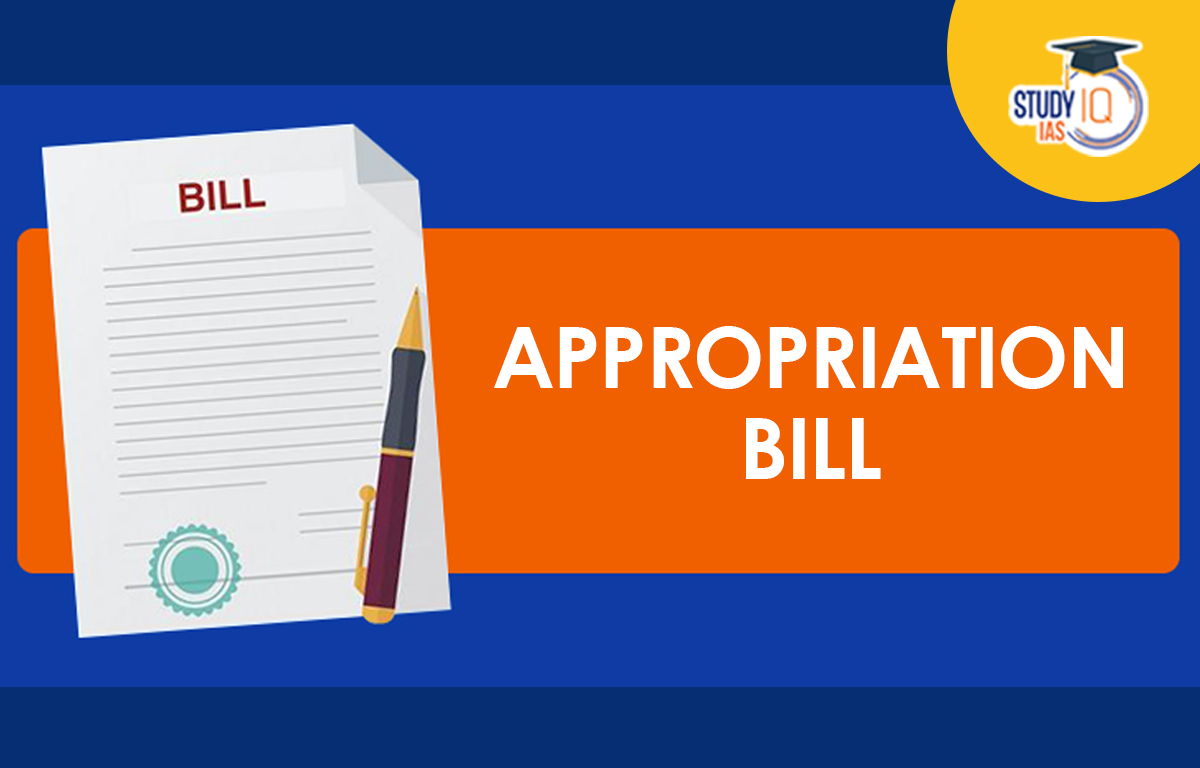Table of Contents
Appropriation Bill
The Consolidated Fund of India may be drained of funds during the fiscal year by the government under the terms of the Appropriation Bill. The government can only withdraw funds from the Consolidated Fund with Parliament’s approval, as stated in Article 114 of the Constitution. The money taken out is utilized to cover ongoing expenses throughout the fiscal year.
The Appropriation e Bill is an important part of Indian Polity which an important subject in UPSC Syllabus. Students can also go for UPSC Mock Test to get more accuracy in their preparations.
Understand the meaning of Appropriation Bill
A bill that authorises the government to take money out of the Consolidated Fund of India for use during the fiscal year is known as an appropriation bill. Appropriation Acts technically remain valid even though they are not on any official list of laws. These acts are money bills that allow the Indian government to withdraw money from the Consolidated Fund of India to cover its expenses for a fiscal year.
Also Read: Demands for Grants
Appropriation Bill Procedure
A Bill is a proposed law introduced in Parliament. Once both Houses debate, approve, and the President agrees, it becomes an Act. Any member of Parliament can introduce a Bill. Money Bills, unlike Ordinary Bills, are only introduced in the Lok Sabha on the President’s recommendation, termed as government Bills.
| Procedure: |
|
Amendment for Appropriation Bill
An amendment is the process of changing a law or document, like a constitution, through parliamentary procedures. For Appropriation Bills, no amendment can alter the amount or purpose of funds already granted from India’s Consolidated Fund. The Lok Sabha Speaker’s decision on these amendments is final.
Vote on Account
According to the Constitution, the government can only spend money from the Consolidated Fund if authorized by law. During the budget process, an Appropriation Bill is needed, but this can take time. Starting April 1, the government needs permission to spend money.
A vote on account, outlined in Article 116 of the Indian Constitution, allows the government to access funds temporarily for short-term needs until the new financial year starts. Unlike a full Budget, which details all expenditures and policy changes, a vote on account is a quick way for the government to secure spending authority without committing to a full Budget right away.
Appropriation Bill Vs Finance Bill Vs Money Bills
A Finance Bill also called a Money Bill under Article 110 of the Indian Constitution, is presented in Parliament each year to implement the government’s financial plans for the next fiscal year, mainly focusing on tax changes. It is introduced during the Budget presentation, and any proposed changes, like adjustments to income tax, must be approved by both houses of Parliament to take effect.
An Appropriation Bill, also known as a Money Bill, allows the government to withdraw money from the Consolidated Fund of India for its expenses during the fiscal year. After the Union Budget is presented, the Appropriation Bill is introduced to secure funds for various social programs.
The key difference is that the Appropriation Bill deals with spending, while the Finance Bill focuses on income from taxes. Also, Parliament can suggest changes to the Finance Bill, but no amendments can be made to the Appropriation Bill.
Appropriation Bill UPSC
A proposed law that authorizes the use of public funds is called an appropriation. It is sometimes referred to as a spending measure or a supply bill. It is a measure that allots funds for particular expenses. In several democracies, the legislature must provide its consent before the government can spend money. Students can read all the details related to UPSC by visiting the official website of StudyIQ UPSC Online Coaching.


 SLAPP Suits: Meaning, Examples, Impact o...
SLAPP Suits: Meaning, Examples, Impact o...
 Finance Commission of India, Articles an...
Finance Commission of India, Articles an...
 High Number of Pending Cases in Supreme ...
High Number of Pending Cases in Supreme ...

























